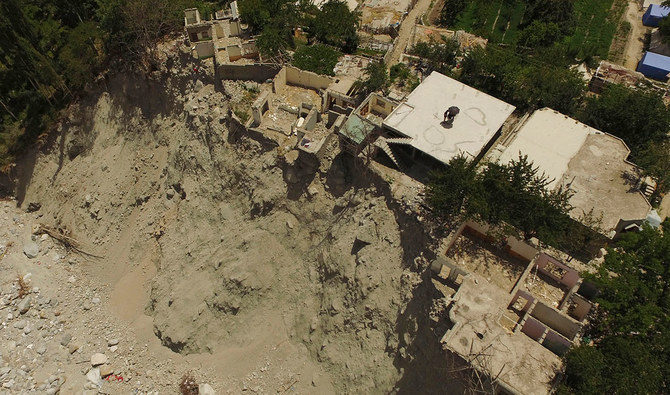Melting mountain glaciers pose a growing flood risk to some 15 million people around the world, researchers said in a report published on Tuesday, with communities in Asia facing the biggest danger.
Runoff from melting glaciers often pools in shallow lakes, held back by rocks and debris. The risk comes when a lake overfills, bursting through its natural barrier and sending a torrent of water rushing down mountain valleys.
Scientists have assessed for the first time how many people globally are at risk from these floods, finding that more than half of vulnerable populations live in India, Pakistan, China, and Peru.
Danger is highest, they report in a study published in the journal Nature Communications, when a large number of people live near a lake.
“Our work does not just focus on the size or number of glacier lakes — no disaster is natural — it is the presence of people, especially vulnerable people, in the landscape that causes a disaster,” said Stuart Dunning, a physical geographer at Britain’s Newcastle University, and a co-author of the study.
Collectively, the world’s glaciers lost about 332 gigatons of ice a year between 2006 and 2016. Since 1990, the number and volume of glacial lakes worldwide have each increased by about 50 percent.
In the high mountains of Asia, some 9 million people live near more than 2,000 glacial lakes. In 2021, more than 100 people were killed in India in an outburst flood in its northern mountains.
HEATING UP THE HIMALAYAS
Compared with mountain glaciers in the Alps and North America, Asia’s icy places are not as well monitored — most lack long-term observations of how they have changed over time.
The best-studied glacier in the Himalayas is north India’s Chhota Shigri, which has 20 years of mass balance measurements — the difference between how much ice a glacier gains and loses in a year.
In 2022, India suffered blistering temperatures and near the end of the year, scientists headed into the Himalayas to measure Chhota Shigri’s mass.
Their findings, shared with Reuters, revealed the best-studied glacier in the Himalayas had experienced its worst year on record; Chhota Shigri lost three times as much mass in 2022 compared with its 2002 to 2022 yearly average.
“The impacts are already visible as the glacier is thinning and retreating,” said Farooq Azam, a glaciologist at the Indian Institute of Technology Indore who monitors Chhota Shigri. This will be “impactful to downstream water availability in near future,” he said.
Satellite observations also show that the glaciers in the Himalayas are in a state of overall decline.
“The ice is really melting significantly during the last decades — mass loss is accelerating,” said Tobias Bolch, a glaciologist with Graz University of Technology in Austria.
From 1990 to 2015, glacier coverage in the Himalayas shrank by about 11 percent, according to July 2022 study.
During the same time period, Himalayan glacial lakes increased by about 9 percent in number, and 14 percent in area. More than 200 lakes now pose a very high hazard to Himalayan communities, according to 2022 research.
















